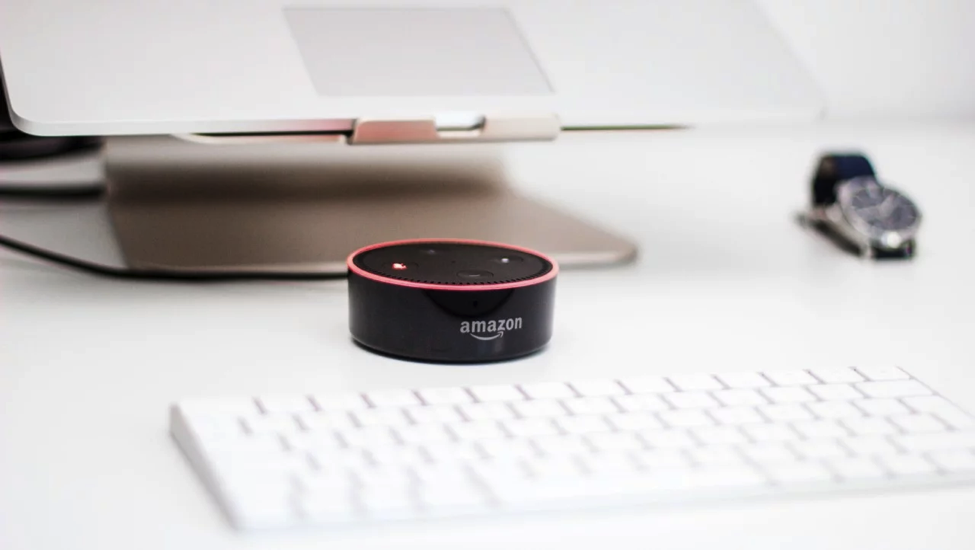Why Retail Brands Should Start Investing in Voice Technology Right Now
18-04-17 Jenny Medeiros 4 min read

Image Credit: Raconteur
“Alexa, order a new coffee mug.”
That’s how easy it is to shop nowadays. With the rise of virtual assistants, the modern shopping experience has left many traditional retailers scrambling for ways to bring spenders back into their stores. So it’s no surprise that big brands are already adopting voice technology to avoid becoming the next payphones on the street corner.
Although there’s a lot more to it than just cashing in on the current hype. Here’s a quick breakdown of why brands need to take voice tech seriously.
Why should brands care about voice technology?
Today, one in six Americans owns a smart speaker. That’s a mind-boggling 128% rise from January 2017. But hold onto your britches, because two years from now Gartner predicts that 75% of US homes will have an AI-powered assistant. Now consider that almost half of current owners already make purchases using their smart speaker, and you’ll see how this trend is steadily leading towards a boom in voice-based shopping.
In fact, a new market research report from OC&C optimistically predicts that voice shopping sales will grow to exceed $40 billion by 2022 across the U.S. and the U.K. That’s only four years away.
For brands, big and small, this is a flashing red arrow pointing to where they should be investing their R&D. Right now, Amazon is the current market leader in voice-activated shopping. The previous report states that Amazon Echo is already in 10% of U.S. households, with Google Home coming in second at 4%, and Microsoft’s Cortana trailing behind at 2%. As for Apple, their HomePod isn’t dropping any jaws just yet. But that could change.
Regardless of who’s dominating the voice market nowadays, voice shopping is the next big thing in online purchasing and brands looking to stay relevant four years from now simply must adopt it.
Who is already investing in voice technology?
Just about every brand is jumping onto the “Alexa Skill” bandwagon, and for many, it’s paying off. Ask Nestlé, who created Ask Purina to offer detailed information on various dog breeds. Or Tide, who launched their own Tide Stain Remover skill to give voice instructions on how to use their products on specific stains. Even Johnnie Walker has joined in on the fun with an Alexa skill for whiskey recommendations. From BBC to Best Buy, no brand wants to be left behind.
In response to the so-called “Amazon singularity”, Google recently partnered with the retail giant Walmart to offer voice shopping to customers. You can bet this is just the beginning of an escalating voice shopping race.
What is the future of voice-based shopping?
It’s not just omnipresent smart speakers taking all the glory. Mobile phones and tablets are also part of the rising voice trend. Over the past two years, mobile searches for “Where can I buy…” have increased over 85%. Naturally, Google took notice and launched “Shopping Actions” for users to make purchases using Google Assistant. This means you don’t necessarily have to create an Alexa Skill to tap into the potential of voice tech. (If you really want to get the insider’s scoop on all things voice, register for the 3-day VOICE Summit coming up in June.)
But going even further into the future, voice tech is likely to embed itself in none other than self-driving cars. (Calm down Elon.) Parks Associates recently revealed how 57% of US households are interested in voice controls for their automobiles. BMW has already jumped at the opportunity and is currently working to integrate Alexa into their cars.
As John Franklin from OC&C rightly commented, “Voice commerce represents the next major disruption in the retail industry, and just as e-commerce and mobile commerce changed the retail landscape, shopping through smart speaker promises to do the same.”
Better get on it then.

Jenny Medeiros
Jenny is an engineer turned tech writer with hands-on experience in VR, AR, video game development, and UX-focused web design. Nowadays, she partners with tech companies to help explain emerging technologies simply. When she's not writing, she's likely daydreaming and forgetting her tea.